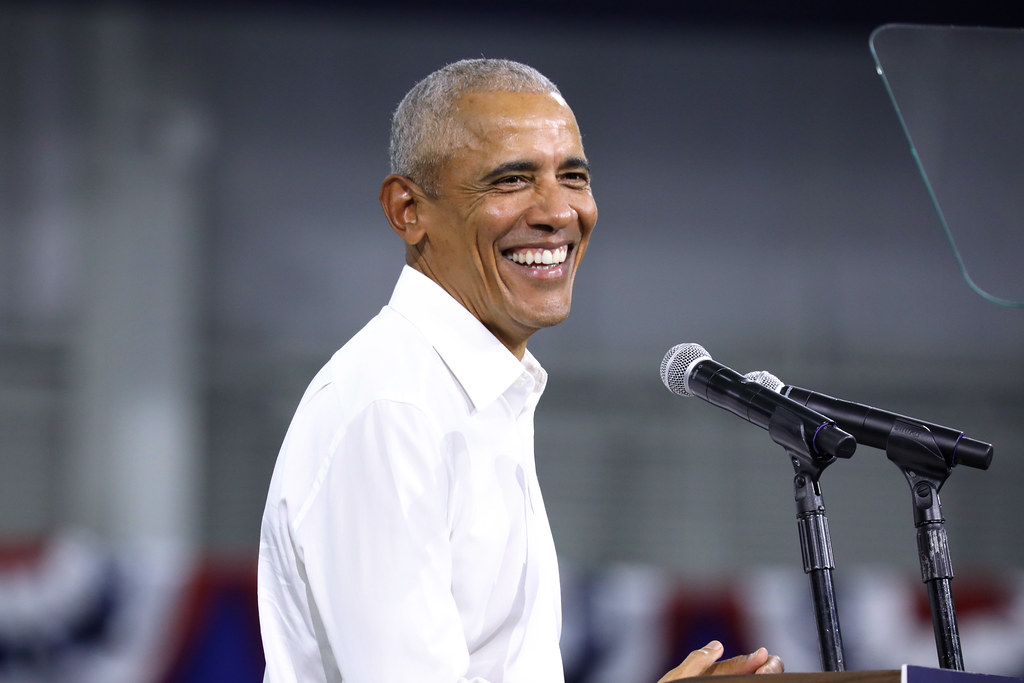
Stepping Into the Spotlight Once More (image credits: Flickr)
In the charged atmosphere of a divided nation, whispers of discontent have turned into open challenges from unexpected corners.
Stepping Into the Spotlight Once More
Imagine a former leader, usually reserved, suddenly unleashing a torrent of pointed remarks— that’s Barack Obama these days. With the Democratic Party grappling for direction after recent electoral setbacks, Obama has emerged as a vocal critic of President Trump’s policies. His recent speeches and statements feel like a rallying cry, pulling no punches on issues from election integrity to public health misinformation.
This isn’t just casual commentary; it’s a deliberate shift. Obama, who has largely stayed out of the fray since leaving office, now sees the moment as too critical to ignore. Sources close to him suggest private talks with party allies convinced him that silence isn’t an option anymore.
The Leadership Gap That’s Fueling Obama’s Fire
The Democratic Party finds itself in a tough spot, with no clear frontrunner to unify the base against Trump’s second term. Figures like Kamala Harris and others have struggled to capture the spotlight, leaving a void that echoes through town halls and online debates. Obama, ever the strategist, is filling that space with his trademark eloquence and gravitas.
His criticisms aren’t scattershot; they’re targeted at what he views as threats to democratic norms. From calling out Trump’s “bizarre” treason accusations to slamming false claims about everyday medicines, Obama is drawing lines in the sand. This surge in activity comes at a time when polls show Democrats craving a stronger voice, and he’s delivering just that.
Key Moments of Obama’s Recent Pushback
Obama’s barbs have landed hard in the past few months. In July, he dismantled Trump’s election-rigging narrative as a “weak distraction,” a rare direct rebuke from his team. By September, he was in London, decrying Trump’s Tylenol-autism links as “violence against the truth” to a crowd of thousands.
These aren’t isolated incidents. Just weeks ago, following the tragic killing of conservative figure Charlie Kirk, Obama labeled the U.S. in a “political crisis,” indirectly faulting Trump’s rhetoric for inflaming tensions. Each statement builds on the last, painting a picture of a nation at a crossroads.
- July 2025: Response to Trump’s treason claims against Obama-era intelligence.
- September 2025: London speech on misinformation and extremism.
- Recent weeks: Broader calls for resistance amid party disarray.
- Ongoing: Private urging of Democrats to step up, per allies.
How Trump’s Actions Are Inviting the Backlash
Trump’s unfiltered style has always courted controversy, but in 2025, it’s drawing sharper responses. His vows to combat “radical leftists” after high-profile incidents have only amplified the divide. Obama, sensing an opportunity to highlight these risks, is using his platform to contrast steady leadership with chaos.
It’s a classic Obama move—framing debates around values rather than personal attacks. Yet the frequency of his interventions signals urgency. As one analyst put it, with no heir apparent in the party, Obama’s voice is becoming the de facto opposition soundtrack.
Reactions from Both Sides of the Aisle
Republicans have dismissed Obama’s critiques as sour grapes from a one-term predecessor, but the timing stings. Trump’s camp has fired back, accusing him of meddling in current affairs. Meanwhile, Democrats are energized, seeing his words as a blueprint for reclaiming momentum.
Public sentiment on social media reflects the split: supporters hail Obama as a moral compass, while detractors call it electioneering nostalgia. Polls from early October show his approval dipping slightly among independents, but rising among core Democrats who feel adrift.
What This Means for the Political Landscape
Obama’s ramped-up role could reshape Democratic strategy heading into midterms. By stepping up, he’s not just criticizing—he’s mentoring, urging the party to find its footing. This might inspire younger leaders or even signal his own deeper involvement down the line.
Yet challenges remain. Balancing influence without overstepping is tricky for a former president. Still, in a year marked by uncertainty, his voice cuts through the noise like few others.
Key Takeaways
- Obama’s criticisms target Trump’s misinformation and divisive tactics head-on.
- The Democratic leadership vacuum is pushing him to speak out more boldly.
- His interventions could unify the party but risk alienating moderates.
As Obama reenters the fray, one thing’s clear: in politics, silence can be deafening, but a well-timed word can spark real change. What do you think— is this the leadership Democrats need right now? Share your thoughts in the comments.






